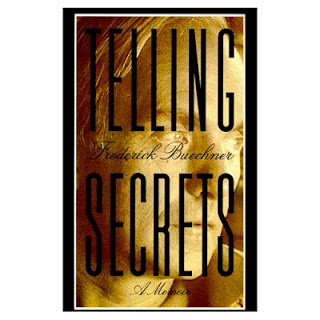Telling secrets
I’m just lifting this post below straight off Alistair’s blog, and returning the link. Because I like it, and so it is going here in Ali’s collection of things I like, in the hope that some readers might like it too. I have only read bits and pieces of Frederick Buechner and never an entire book, but he is added to my dream list.
Years ago I went away on a church camp (except we don’t call them “camps” here in the city I’ve discovered – they are called “weekends away”, just so everyone knows exactly what it is and snoots don’t have to go on something called a “camp”), and found myself in conversation over lunch with someone I had never spoken to before. After that conversation this person, who has spent many a year talking to people, told me I had been “breath-takingly candid”. Few people would be more surprised at that description of myself than me, because I often feel somewhat tormented by my own reserve, and plagued by things I wished I'd said in conversation long after the conversation is over. I have attempted since to understand how such candour came about. It actually wasn’t that the other person told me their story first – not at all – they just had a way of asking about mine that made not telling it almost impossible. It’s a rare gift that I would like to possess, not just to gather up stories about others, but (and I think emanating this is part of the secret to eliciting candour) to truly know the other person and understand the place they are talking to you from.

Telling Secrets, as per Alistair, is an autobiographical work by Frederick Buechner in which he attempts to explain and then come to terms with the dark secret which is his father's alcoholism and suicide. This is part of the introduction:
I have come to believe that by and large the human family all has the same secrets, which are both very telling and very important to tell.
They are telling in the sense that they tell what is perhaps the central paradox of our condition—that what we hunger for perhaps more than anything else is to be known in our full humanness, and yet that is often just what we also fear more than anything else.
It is important to tell at least from time to time the secret of who we truly and fully are—even if we tell it only to ourselves—because otherwise we run the risk of losing track of who we truly and fully are and little by little come to accept instead the highly edited version which we put forth in hope that the world will find it more acceptable than the real thing.
It is important to tell our secrets too because it makes it easier that way to see where we have been in our lives and where we are going. It also makes it easier for other people to tell us a secret or two of their own, and exchanges like that have a lot to do with what being a family is all about and what being human is all about.

